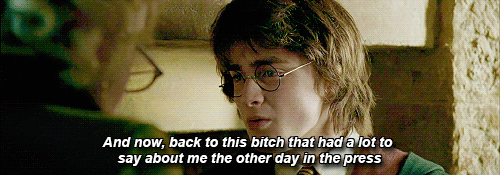No products in the cart.
Return To ShopSunday was Delhi Queer Pride! Did you go?
Aanchal Tuli reports on a discussion about Fire, Deepa Mehta’s alternately celebrated and reviled movie:
“In a clip presented at the session, we were reminded of how posters were torn and theatres damaged by Shiv Sena activists, who thought the movie was against Bhartiya Sanskriti. During their session, the director remembered how she was told that there were ‘no lesbians in India’ and that she should be banned for introducing this ‘western devil’ in the country…we concluded that a film like Fire would never have seen the light of the day had it been made in 2015.”
Paromita Vohra says some brilliant things about selfies, the gaze, and the multiple meanings of our actions.
“Recently, I got into a small debate online about whether men take more selfies or women do. Research based on data from Selfiecity indicated that women take more selfies. A more recent survey indicates men might have overtaken women…The question may be: why does it matter?…What is this anxiety rooted in?”
The Ladies Finger blessed us this week with this hilarious list of things to avoid saying as a dude in a feminist space: “As a feminist man I will acknowledge my privilege, like the PRIVILEGE of being surrounded by these pretty women.” (Who hasn’t heard some douchebag say this at least once?!)
On these online forums, Indians seeking maids can be classist, casteist, and generally disgusting with exceptional candour. “BookMyBai was in the news this month for their problematic ad saying, “Diamonds are useless. Gift your wife a maid.” Terrifyingly, that’s an ad for a product, not a service.”
On the intolerance debate:
- Arundhati Roy says that intolerance is not an accurate description for the violence visited upon minorities in India, and argues that the current government promotes Brahmanism. The ABVP takes offence, calling her words anti-national, anti-Indian-Army, and pro-Pakistan.
- Ratna Kapur in The Wire argues that tolerance in an inadequate concept: “Tolerance operates as a gatekeeper, policing the boundaries and drawing a line between those we like and those we do not like. It does not offer any vision of transformation and becomes a substitute for justice.”
Arundhati Roy, John Cusack, Edward Snowden and Daniel Ellsberg talk about the rise of the surveillance state:
“I was glad to see that when Snowden made his debut on Twitter…he said, “I used to work for the government. Now I work for the public.” Implicit in that sentence is the belief that the government does not work for the public. That’s the beginning of a subversive and inconvenient conversation. By “the government”, of course, he means the US government, his former employer. But who does he mean by “the public”? The US public? Which part of the US public? He’ll have to decide as he goes along. In democracies, the line between an elected government and “the public” is never all that clear. The elite is usually fused with the government pretty seamlessly. Viewed from an international perspective, if there really is such a thing as “the US public”, it’s a very privileged public indeed. The only “public” I know is a maddeningly tricky labyrinth.”
Why science fiction matters to the postcolony:
“But Dune is more than a direct allegory for the tragic unfolding of history. It recasts the Middle East and North Africa and its peoples into a new, and perhaps truer, image of themselves; an image that can only be appreciated through the experience of reading. Yes, events have not unfolded as triumphantly [for MENA] as they do for the Fremen. But the literature of science fiction and fantasy expresses the irrationality with which the real world violently comes into being. It draws out the metaphors with which reality is made.”
Katha Pollitt’s take on the shooting at a women’s health clinic in Colorado – “Abortion opponents are at the forefront of a wider effort to punish poor women and attack social services.”
Jason Hickel says, enough of aid – let’s talk reparations for colonialism.
“It is tempting to see [colonialism] as just a list of crimes, but it is much more than that. These snippets hint at the contours of a world economic system that was designed over hundreds of years to enrich a small portion of humanity at the expense of the vast majority…This history makes the narrative of international development seem a bit absurd, and even outright false. Frankie Boyle got it right: “Even our charity is essentially patronising. Give a man a fish and he can eat for a day. Give him a fishing rod and he can feed himself. Alternatively, don’t poison the fishing waters, abduct his great-grandparents into slavery, then turn up 400 years later on your gap year talking a lot of shite about fish.”
In the wake of the death of Laquan McDonald at the hands of yet another police officer, Black Americans stage an economic boycott of Black Friday, the U.S.’s annual post-Thanksgiving shopping extravaganza, vowing to give #NotOneDime to the capitalist state.
In her new video ‘Borders’, M.I.A. fuses biography with art and politics to create compelling commentary on refugees – commentary not prompted by the current European ‘crisis’, but by the invisibility of other, past, forgotten ‘crises’. Sinthujan Varatharajah writes:
“As a Tamil woman and refugee, M.I.A. has been subject to racist and sexist discourses on refugees before they became public grounds of debate. She today applies these tropes as a political strategy to subvert mainstream conceptions on refugees, borders and security regimes. Shorthanded accusations of exploitation made by some, specifically people of color with no refugee background, divorce her from the tremendous work she has done for her own refugee community – and beyond to support refugee advocacy over years. MIA has always articulated her art and politics from the position of a former refugee, a position not many of her critics can claim for themselves. Her “refugee-dom” has always been paramount to her career and has been reflected in her multimedia art long before her most recent video. It was never a trend or bandwagon she jumped upon, but one that was created and picked upon by others: non-refugees.”
Fatima Bhutto in Granta writes about the pleasure and the labour of the kitchen – her “other thing”, when she’s not writing:
“I love to cook. It’s joyous. I love the creating and the sharing. I think of how it connects mood and sentiment, occasion and celebration. But cooking has always been a luxury to me, all indulgence and praise. I never worked seriously on it, never so thanklessly. No one who comes into the Delaunay, or any other restaurant for breakfast, however well-meaning, thinks to thank the tourier. No compliments are sent to the chef, who has given up his night and also his day, when he returns home to sleep through the afternoon.”
PS: Join us for this Saturday for a day of conversations between European and Indian women writers! Curated by Zubaan with support from EUNIC India, this event will feature, amongst others, Annie Zaidi, Paromita Vohra, Bee Rowlatt, Espido Freire, Mrinal Pande. What else are you doing with your Saturday anyway?




